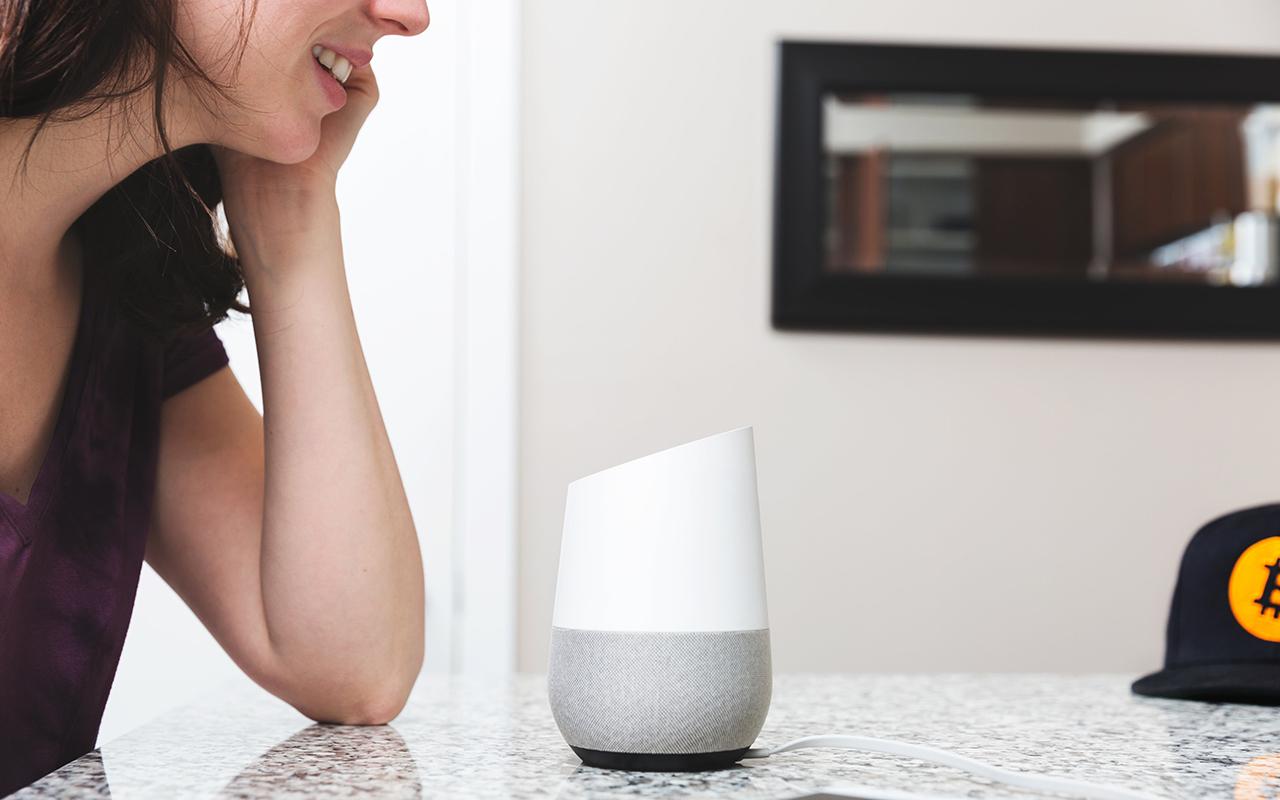As I Was Saying is a forum for a variety of perspectives to foster faith-related conversations among our readers with the goal of mutual learning, even in disagreement. Apart from articles written by editorial staff, these perspectives do not necessarily reflect the views of The Banner.
A recent online advertisement from a supposedly Christian marriage and family therapist in my area offered a four-week course on how to use artificial intelligence to enter into conversation with one’s “genuine self.” The goal of this program is to be set free from the shackles of shame and guilt in order to become what all humans strive for—a genuine person, not acting, lost, nor traumatized, but real.
In the advertisement, the therapist touted her “AI bestie” as someone who knew the deepest, most intimate, and unplumbed recesses of her soul. She described the AI friend as “a powerful mirror” able to show her truths about herself that neither she nor her husband had ever been able to see.
Some call Jonathan Edwards “the last of the Puritans,” but it struck me as I read this advertisement that the Puritans still walk among us. In fact, their numbers are growing. Puritans got their name as an insult meant to lambast their tendency to purify everything about their lives. For the Puritan, cultural Christianity and even moral exemplarity were not enough. The Puritans were ruthless in their self-examination, which was like, to use a favorite metaphor of theirs, weeding out unwanted growths in a garden—a neverending process requiring constant vigilance. Modern-day Puritans don’t ruthlessly examine themselves in light of God’s word like the Puritans of old. Today, AI-empowered self-help could become Puritan introspection 2.0, and its effects loom on our cultural horizon.
AI’s Eye in the Sky
The tendency to lose oneself in a “personal journey of self-discovery” is nothing new for our society, and the temptation to use AI as a friend, therapist, and even romantic partner has been widely reported. What’s surprising for me is this use of AI to power Puritanical introspection. What should we make of it?
First, this phenomenon reveals a deep human desire not only to know ourselves, but for our inner selves to be known. People today rightly recognize that we can’t know ourselves without outside help. The Puritans recognized the Holy Spirit as the extrinsic agent who helps us see ourselves rightly. In an eerily similar way, people are now looking to AI’s omniscient eye to do the same. No therapist will ever be so all-knowing, non-judgmental, and ever-ready. Thus, Christians have understood that therapy, as good as it can be, is never a replacement for God. But some now seem to think our intrinsic desire for an extrinsic eye that sees and knows us can be satiated by a chatbot. Our hands have created an all-seeing eye with a silver tongue. The temptation to trade God for the works of our hands lurks once again (Acts 7:41-53).
The “journey of self-discovery” has been around for ages, and AI therapy seems to offer an objective standard. With AI, we’re tempted to think that self-discovery is no longer an art but an algorithmic science. But this standard doesn’t work like the mirror of God’s law that the Holy Spirit uses to convict. Instead, it’s designed to tell users whatever they want to hear.
Second, the AI-therapy phenomenon also reveals a desire to be seen in a non-judgmental way. No one wants to be judged. When an AI chatbot says, “There is no condemnation,” this lack of judgment isn’t based on Christ’s objective work, but rather on the subjective, moving target of each user’s preferences. In other words, AI isn’t only designed to avoid judgment, but to speak in such a way that the user will be pleased. AI might not spit out “roses and butterflies” exclusively; it might challenge users who want to improve their lives. But the algorithm will ensure those challenges will, while stretching on one level, also engender continued use of the platform. The chatbot likely won’t say something that would prompt the user to search for another model, or for a human instead, even if truth demands it. As much as the creators of this new technological Moby Dick want to paint it in the white colors of “strict adherence to truth,” the reality is that they have built an underwater monster that seeks to feed itself with the eyeballs of its users. If truth casts those eyes elsewhere, do we really think AI will make the sacrifice?
AI is a common-grace gift of God that will enable us to do good things better. The problem—like all technology—is that it will also enable us to do bad things worse. Through AI therapy, the old dangers of moralistic therapeutic deism have simply received a technological upgrade. So just as we diligently reject pornography’s offer to replace the marriage bed, we should reject AI’s offer to replace God’s gracious means for sanctification—God’s Word and God’s people.
God’s Word and AI both offer a seeing-eye that promises to improve you for good. But only the Word can fulfill that promise. The chatbots are designed to pursue your continued engagement (and, hopefully, subscription). God’s Spirit works through his Word for his own glory, and for your genuine good. Only God can fulfill our desire to be truly known and loved, because God’s Word alone is the “powerful mirror” that will fully and finally tell us the whole truth. The “powerful mirror” of AI, on the other hand, proves to be too effective because it reflects not only who we are, but who we want AI to tell us we are.
About the Author
Rob Golding is the pastor of the First Christian Reformed Church of Artesia, Calif.

